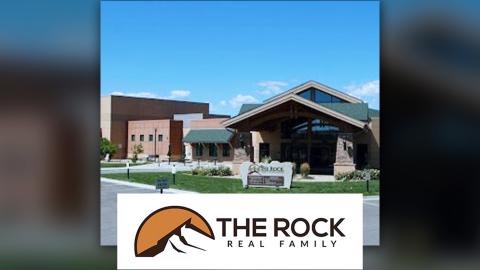Picturesque Metula, Israel's Northernmost Community, at the Forefront of Hezbollah Attacks from Lebanon
METULA, Israel's northern border – With Israel's war against Hamas in its sixth month, fighting against the Iranian-backed Hezbollah in Lebanon continues to develop.
In the border town of Metula, life is becoming increasingly untenable for the few who remain there.
Metula is Israel's northernmost town, sitting only about 50 feet from the border with Lebanon. Since October 7th, Hezbollah has rained down more than 150 rockets and anti-tank missiles at the 620 homes here.
CBN News joined other journalists on a brisk tour as town council head David Azulay urged us to keep moving, due to potential danger.
We stood in a house in Metula that was hit by Hezbollah fire. More than 130 homes in the tiny border community have been hit by Hezbollah fire.
Metula is actually older than the State of Israel, which was established in 1948. Now, no residents are allowed to stay in the town.
"We can't enter our houses," Azulay told us. Is it possible that me, the council head – I live on the eastern side – for three weeks I didn't go in my house except to take clothes. I'm not sleeping at home."
Almost all of the town's 1,600 residents evacuated within the first two weeks of the war. Only 30 security personnel remain – staying in a protected area. Houses are empty, ripe fruit hangs on garden trees.
Fortunately, no one has been killed here, although one civilian and two soldiers have been wounded.
A car in the town sits in the middle of the road. It was hit by a Hezbollah rocket. The driver was getting out at the time. He was wounded, but he managed to survive.
Azulay believes peace is the only answer, and that there's only one way to obtain it.
"At the moment the Americans finish the story with Iran, and there's no more threat, there also won't be Hezbollah, because the one who activates Hezbollah is Iran. Everything starts with Iran and (spreads out). By the way, Iran is also against the Americans and the Israelis," Azulay stated.
Former Israel Defense Forces intelligence officer Sarit Zehavi, now with the Alma Research and Education Center, feels like war began in the north on October 8th, the day after Hamas carried out its massacre near Gaza in the south.
"It's a little bit different from the south because here the communities are even closer to the fence and there are many of these (communities) like that," she explained. "That's 43 communities that became ghost towns."

Zehavi says that since the 2006 war with Hezbollah in Lebanon, the north has been relatively quiet, with "only" dozens of attacks.
As a mother and a resident here, her fear is what life will look like going forward.
"Now we have daily (attacks). And the average of attacks coming by Hezbollah – by Hezbollah itself, claiming responsibility – is an average of about 50 attacks every week in the past few months," Zehavi asserted.
Terrorists also use missiles that fly so low that warning systems and even the Iron Dome missile defense system can be ineffective.
Zehavi showed us how positions are visible from northern Israel, and she has photos to prove it.
"Remember, they're not supposed to be there at all, by U.N. Security Council resolution," she explained. "That's why we saw the preparations for an invasion. We saw how they were deployed on the border. And we strongly believe that they are going to do it."
Ten years ago, Hezbollah publicized a plan on its television station for thousands of fighters to invade and take over the Galilee.
"The idea is to enter into communities well from various areas along the borderline, while each force that will enter will have a mission. And the mission is a civilian community – Nahariya, Shlomi – to trap civilians to become human shields, (to) take over the main roads, to block the main roads to prevent any assistance from coming," Zehavia related. "All the principles that we saw that Hamas executed (on) October seven exist in a Hezbollah invasion plan from a decade ago."
Zehavi believes Hezbollah now prefers to drag Israel into a war rather than invade.
"As a resident of the Galilee, I don't sleep at night, worrying that we will end up with a ceasefire that will not eliminate completely these (capabilities) and will not prevent Hezbollah from recovering very quickly to be capable to execute this plan," she told us.
Zehavi adds that given its entrenchment, forcing Hezbollah to withdraw from southern Lebanon, as Israel is demanding, won't truly provide this region with the security it needs.
"Everybody is talking about (the) withdrawal of Hezbollah. Right. What is Hezbollah?" she asked. "It's a terrorist organization. It's a social movement and it's a political party in Lebanon, (a) member in the Lebanese government and the Lebanese parliament. And that's why I think that the wording, if we talk about a diplomatic arrangement, should refer to disarm(ing) rather than withdrawal."
Zehavi maintains it's clear that Hezbollah's loyalty is not to Lebanon or its people. They follow Iran, its ideologies, and its interests because the regime has a plan to unite all fronts – Hezbollah, Islamic Jihad, and other proxies.
She pointed to a photo of a large painting that was created on the Lebanese side of the wall between Lebanon and Israel. It was done by a Hezbollah supporter and it depicts an explosion in the wall, opening the way for a march on Jerusalem.
"You can understand the idea – on their way to Jerusalem. That's the (Hezbollah) mission," she said.
***Please sign up for CBN Newsletters and download the CBN News app to ensure you keep receiving the latest news from a distinctly Christian perspective.***




